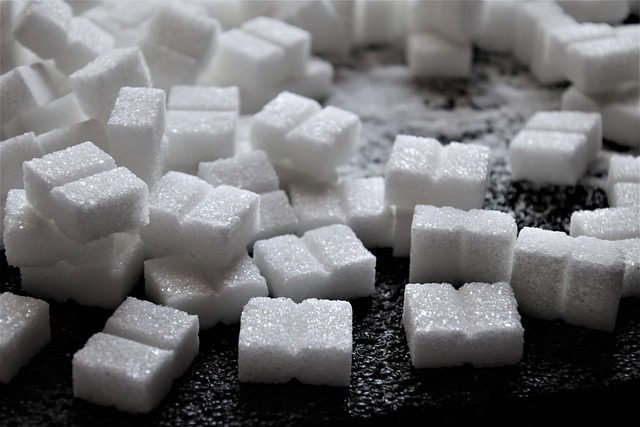Can You Use Monk Fruit Sweetener While on Keto?
Monk fruit sweeteners are a low-calorie, all-natural alternative to sugar. It’s also known as luo han guo or luo han kuo (the Chinese words for monk fruit). The extract is made from the fruit of the monk fruit plant, which is native to China and Thailand.
The sweetener has been used in Asia for centuries, but it’s only recently become popular in the West. Today, many people are turning to monk fruit sweeteners because they believe it’s better for their health than other artificial sweeteners like aspartame and sucralose.
In this article, we are going to take a deeper dive into what exactly monk fruit is, how it compares to other sweeteners, and all the health benefits you may experience through its use.
Related Article: What Happens When you Follow a Low Sugar Diet?

Disclaimer: This article is for informational purposes only and is not to be used to treat or diagnose any condition. It is recommended that you speak with your healthcare professional before adding anything new to your nutrition plan to ensure it will not interact with any condition you may have or medication you may be taking.
What Is Monk Fruit?
Monk fruit is a small, round fruit that grows on a vine. It originated in the mountains of southern China and spread to Southeast Asia, where it’s now grown commercially. This fruit contains mogrosides, which are sweeteners that have zero calories and don’t affect blood sugar levels (which is beneficial for a variety of reasons that we’ll touch on shortly).
The taste of monk fruit is much sweeter than sugar, so you need less of it to get the same level of sweetness. As such, it’s often used in low-calorie or “diet” foods.
Related Article: Is the Keto Diet the Right Plan for Elite Athletes?
Companies make carb-free, zero-calorie sweeteners from the dried fruit. It is more or less 250 times sweeter than regular table sugar but doesn’t affect blood glucose levels.
Monk fruit is rich in compounds known as mogrosides, which give it a much higher sweetness than that of sugar.
The Food and Drug Administration (FDA) permits the use of monk fruit in foods and beverages because it is safe for all consumers, including pregnant women, children, and even people with diabetes.
Monk Fruit Health Benefits
Monk fruit sweeteners are a healthy sugar substitute with only trace amounts of sugar and carbohydrates. They’re also low glycemic, meaning they won’t spike your blood sugar levels as compared to using something like sugar.
Related Article: The Ultimate Guide to Implementing the Ketogenic Diet
Here are five benefits of monk fruit sweeteners you should understand to truly grasp how powerful this sugar substitute is:
1. Helps in Weight Loss
Monk fruit sweeteners have zero calories and carbohydrates, making them an excellent choice for those on low-carb or even zero-carb diets. Unlike artificial sweeteners, monk fruit sweeteners do not cause cravings for more sweets or cause digestion issues. Since you don’t need very much to get the sweetness you want out of your food, it can help you reduce your total caloric intake even further — potentially promoting weight loss.
Click here to continue reading…


*Disclosure: This article may contain affiliate links or ads, which means we earn a small commission at no extra cost to you if you make a purchase through these links. These commissions help support the operation and maintenance of our website, allowing us to continue producing free valuable content. Your support is genuinely appreciated, whether you choose to use our links or not. Thank you for being a part of our community and enjoying our content.
PLEASE CONSIDER SHARING THIS ON YOUR SOCIAL MEDIA TO HELP OTHERS LEARN MORE ABOUT THIS TOPIC.





